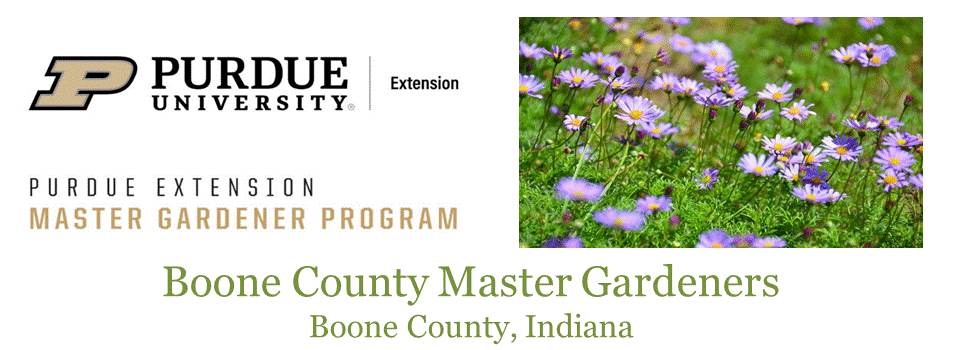GARDENING: A Guide for Community Gardens during the COVID-19 Pandemic
March 25, 2020 https://extension.purdue.edu/article/36666
Community gardens offer many benefits — gardening knowledge, social bonding and, most importantly, the increased production and consumption of nutritious, fresh and locally grown fruits and vegetables.
Amid the COVID-19 pandemic, people may be unsure if it is safe to visit a community garden or even if the garden remains open. Garden access may be contingent on its role in carrying out essential functions as designated by Indiana’s shelter-in-place order. (These regulations also are subject to change amid fluid developments.)
It is essential that garden leadership teams clearly and quickly inform all audiences of any policy changes.
This guide offers ideas and guidance on:
- Best practices for community garden management during the COVID-19 pandemic
- Additional cleaning/sanitation precautions to utilize in community gardens
- Recommendations on being a safe, responsible visitor at a community garden
Following these recommendations, along with the use of common sense and caution, can increase the likelihood that community gardens will remain accessible.
Garden Types
Knowing a community garden’s type is key to understanding its potential role in essential functions.
- Sharing Gardens: Also known as food pantry gardens, these gardens operate on the principles that those who use them help maintain them and only take food that they know they will use.
- Allotment Gardens: Also known as community gardens, these gardens offer individual plots on which community members grow and harvest produce for themselves and their families.
- Demonstration Gardens: Also known as educational gardens, these gardens host instructions on gardening practices, healthy living and plant science, with produce donated to food pantries or cooking classes.
To make decisions on garden availability and access, Purdue Extension advises that community garden leadership consult with local government leaders to determine if their space is considered essential.
Best Practices for Community Garden Management During the COVID-19 Pandemic
If a community garden is considered an essential space, garden management should immediately implement the following practices for any garden visitors, volunteers or maintenance groups:
- Communicate to all potential audiences that they should not visit the garden if they feel ill
- Do not allow anyone with signs of illness on the site; volunteers may need to control entrance
- Postpone community events/tours, as well as carry-ins, potlucks or self-serve food
- Leave garden gates open during hours of operation to avoid frequent contact
- Remove or cordon off public benches or picnic tables
- Limit the size of work groups to 10 people or fewer
- Stagger times for arrival and availability to reduce crowds
- Enforce social distancing guidelines of remaining at least 6 feet apart at all times
- Ask volunteers to bring their own tools or assign select tools and tasks to individuals
- Create and implement procedures to sanitize tools before and after garden work
- Undertake additional cleaning and sanitation protocols and recommendations, such as
- Regular cleaning of contact surfaces (doorknobs, padlocks, water spigots, gates, etc.)
- Hand-washing or hand-sanitizer stations
- Reminders on how to properly wash hands (i.e., thoroughly and for 20 seconds)
- Encouragement of visitors/volunteers to wash or sanitize their hands
The Environmental Protection Agency website offers a list of EPA- registered disinfectant products for COVID-19. Always consult product label guidelines to determine if disinfectants are safe and recommended for use in a garden.
Garden leadership should communicate all new or amended policies through:
- Signage at the garden entrance, near water sources and wherever tools are stored
- Emails to gardeners that request a response of confirmation that all policies are understood
- Social media or other methods to reach community members who may not be on a mailing list
Best Practices for Garden Visitors
If a community garden remains open to visitors beyond volunteers/maintenance crews, visitors should take additional precautions to allow safe enjoyment and minimize the potential spread of COVID-19.
- Do not visit the garden if you are feeling ill or showing signs of illness
- Wash/sanitize your hands before and after visiting the garden
- Follow all new and existing garden policies
- Maintain social distancing (6 feet between individuals)
- Limit interactions and time spent in the garden
- Minimize contact with surfaces (e.g., doorknobs, gates, latches, railings)
- Wash your hands and any produce you bring home to reduce contamination
Authors
Terri Theisen, Urban Agriculture & Horticulture Educator, Purdue Extension – Allen County
Jackie Hoopfer, Purdue Extension Advanced Master Gardener and Display Garden Coordinator in Allen County
Veronica Jaloma, Community Wellness Coordinator, Purdue Extension – Lake County
Rebecca Koetz, Urban Agriculture & Horticulture Educator, Purdue Extension – Lake County
Rosie Lerner, Purdue Extension Consumer Horticulturist
Karen Mitchell, Agriculture & Natural Resources Educator, Purdue Extension – Tippecanoe County
Nathan Shoaf, Purdue Extension Urban Agriculture State Coordinator
Andrew Smith, Urban Agriculture & Horticulture Educator, Purdue Extension – Vanderburgh County

thanks